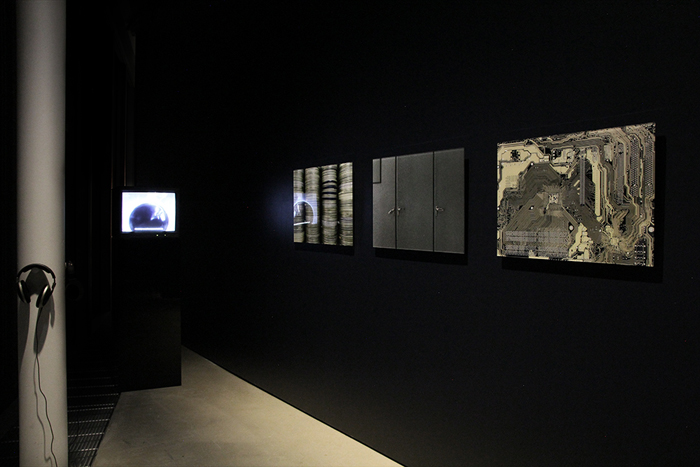The title Storage of The Id is partly related to
Freud's concept Id which stands for the unknowing. It is also a term
used in the Science fiction movie "Forbidden planet" (1956) to describe
how a machine produces even subconscious emotions and visualizes them
in physical objects. The abbreviation ID also uses the Scientologists
to describe the individual's capacity, to access his memory bank and
thus move on a time track.
The photographs show three epoch's ways of storing information and the
first image is metal boxes that store 35mm film rolls. The first 35mm
films came at the end of the 19th century and enabled a revolutionary
way of saving image and sound - collecting time.
The second image is the back of one of Sweden's first computers - BESK
(Binary Electronic Sequence Calculator). For a few weeks in the early
50's, BESK was the fastest computer in the world. It was used, among
other things, for calculating weather data for SMHI, but it was also
used by the Swedish Defense Radio Agency (FRA) to crack encrypted radio
messages.
MOBO is an abbreviation of the Mother Board (used in today's computers)
and the image is from the inside measurement of a computer. The
motherboard is the center of the computer as all devices are connected
to it, thus enabling communication between them.
You can see how the view of human memory has been affected by the
success of technology. Unlike psychoanalysis's exploration of the
unconscious, the religious movement Scientologists believed that memory
was somewhat accurate. Scientology is interesting from the perspective
that they started in the 50's when technology advances spread a
technology optimism, and you can see how this is reflected in their
notions of human memory and self-perception. They compare human memory
with a computer, where everything is stored. You can also see the
movement's connection to how the film medium could store information.
During the 1950s, color film became commonplace in Hollywood, and
Scientology describes that what is stored in our memory is divided into
25 frames per second, in full color reproduction.
|

